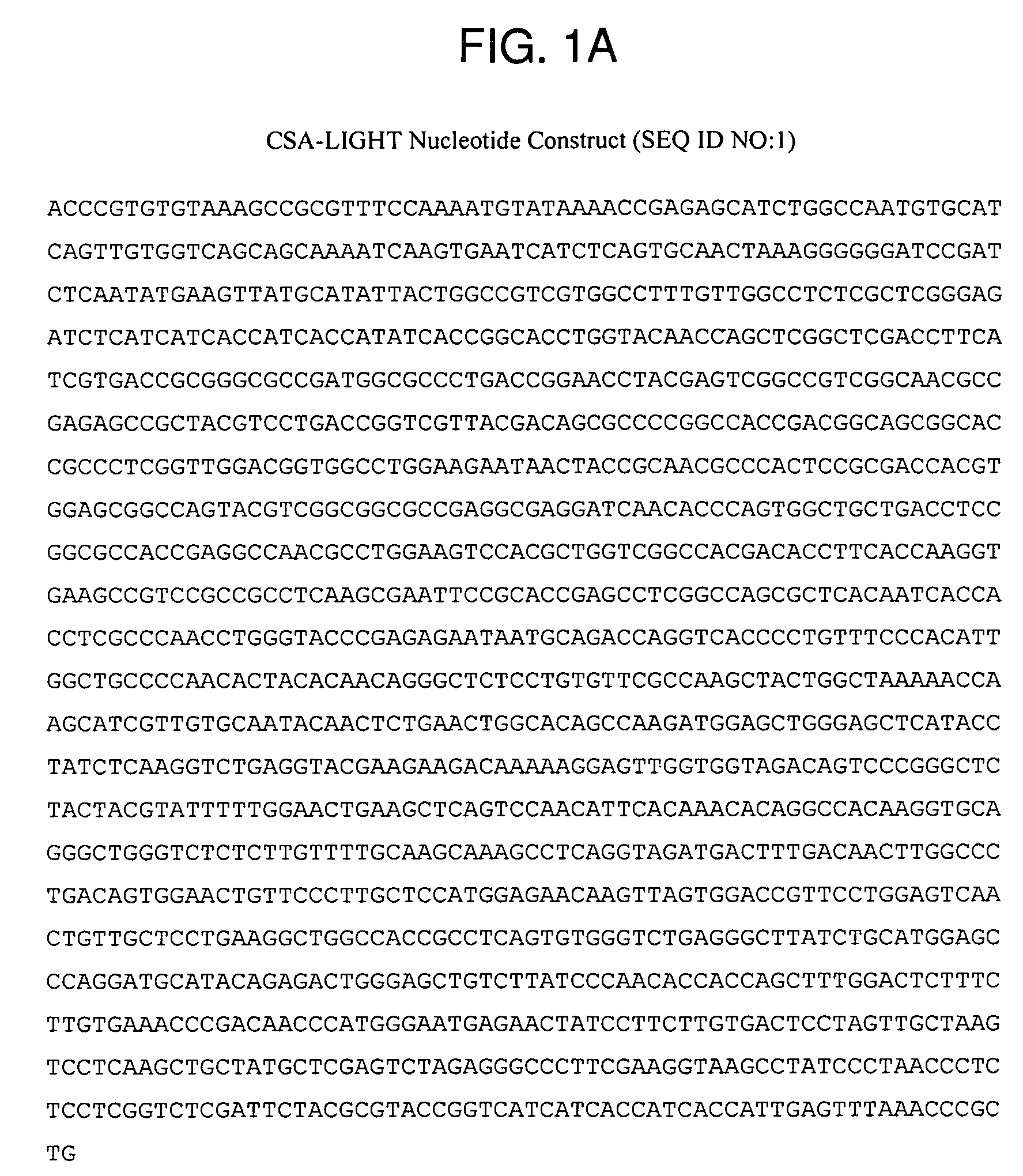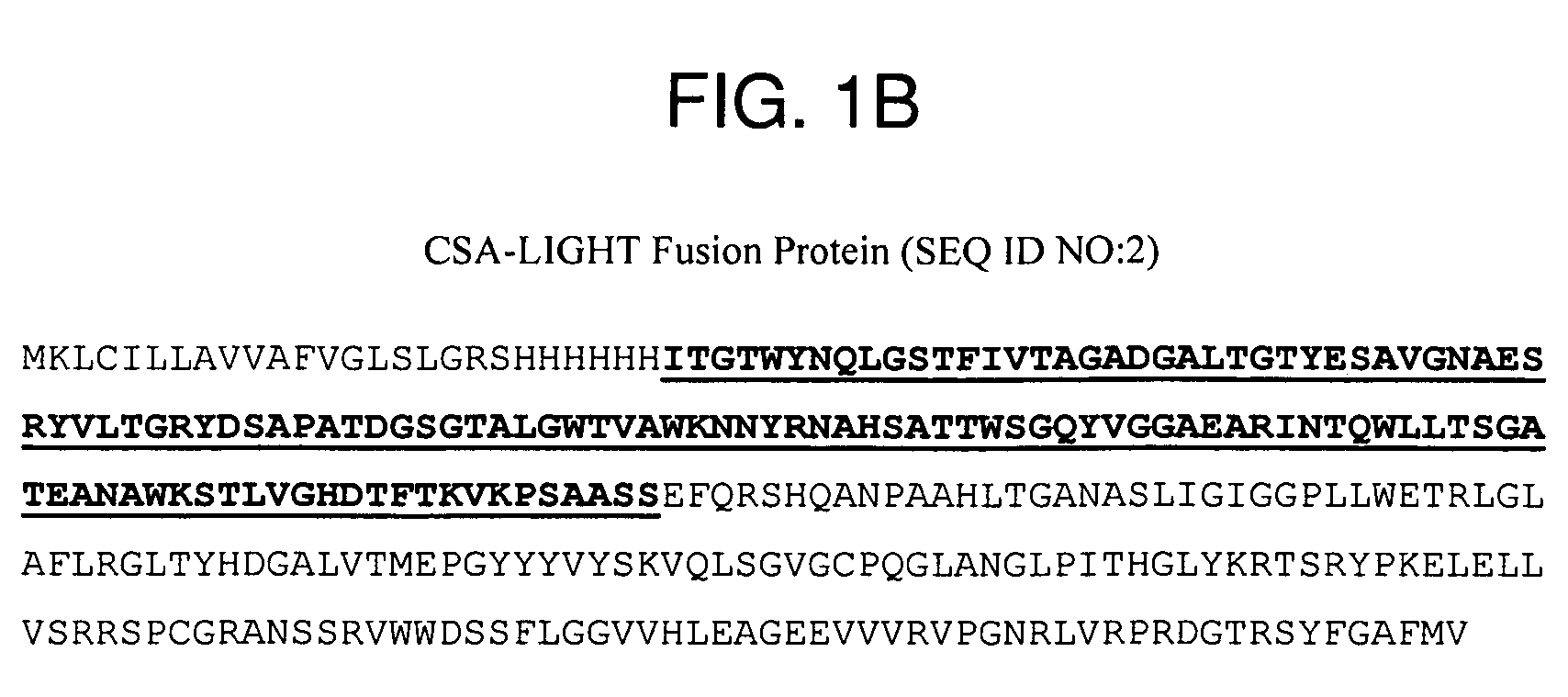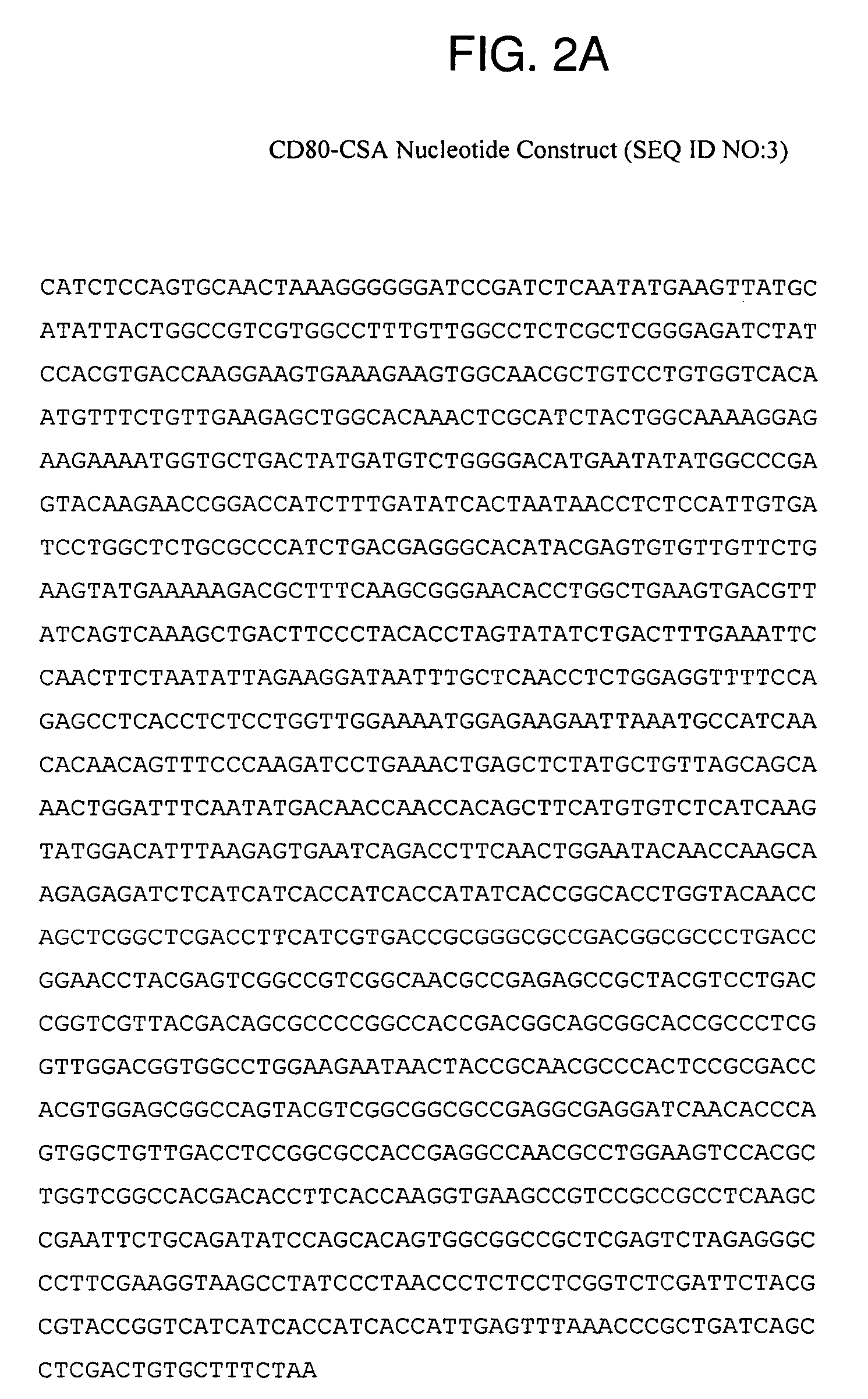Methods and compositions for expanding T regulatory cells
a technology of t regulatory cells and compositions, applied in the field of immunotherapy, can solve the problems of type 1 diabetes, a major cause of long-term morbidity and mortality in over one percent of the population worldwide, and both approaches suffer from major limitations
- Summary
- Abstract
- Description
- Claims
- Application Information
AI Technical Summary
Benefits of technology
Problems solved by technology
Method used
Image
Examples
example 1
Cloning and Expression of a CSA-4-1BBL Conjugate
[0192]Total RNA was isolated from mouse splenocytes stimulated with LPS (5 μg / ml) for 2 days using TRI Reagent (Molecular Research Center, Cincinnati, Ohio). Two microgram of this RNA was used to generate first strand cDNA, which was used as template for PCR to amplify the extracellular domain of 4-1BBL (aa 104-309) using sense (5′-ATC GAA TTC CGC ACC GAG CCT CGG CCA GCG-3′(SEO ID NO: 21)) and antisense (5′-GGA CTC GAG CAT AGC AGC TFI′G AGG ACT TAG C-3′(SEO ID NO: 22)) primers. Primers were engineered to include EcoRI and XhoI sites to facilitate the directional and in frame cloning into the DES expression vector (Invitrogen, San Diego, Calif.). The PCR products were cloned into PCR2.1TOPO vector and several positive clones were subjected to DNA sequencing. A single clone containing the accurate sequence for 4-1BBL was digested with EcoRI and XhoI and subcloned into pMT / BiPfV5-His expression vector containing a 6xHis Tag (SEO ID NO: 23...
example 2
Treg Expansion Using a CSA-4-1BBL Conjugate
[0198]CD4+CD25+ Treg cells were sorted from the spleens of BALB / c mice (FIG. 9A) using fluorescent activated cell sorting (FACS) and activated with anti-CD3 antibody (0.5 μg / ml), CSA-4-1BBL (1 μg / ml), and IL-2 (25 IU / ml) in the presence of syngeneic APC. Cells were then maintained at ˜1×106 cell / ml with IL-2 supplemented medium every 3 days for 10-12 days. The cultures were then subjected to another round of activation followed by maintenance with IL-2. As shown in FIG. 9, this regimen allowed for 55- to 110-fold expansion of Treg cells within 18-24 days, with a 110-fold expansion within 25 days (FIG. 9B). Treg cells maintained under the same conditions but without CSA-4-1BBL conjugate only minimally expanded. Expanded Treg cells formed a homogenous population composed of CD4+CD25bright cells (FIG. 9A, bottom right panel) expressing high levels of FoxP3 protein (determined by RT-PCR or anti-FoxP3 antibody) as well as Fas, CD62L, GITR, CD25,...
example 3
Expanded Treg Cells Prolong Islet Allograft Survival
[0199]To test the therapeutic effect of polyclonally expanded Treg cells, chemically induced (by streptozotocin) diabetic BALB / c mice were adoptively transferred with 5-10×106 Treg cells expanded in culture as described above for 20-25 days and then given transplants of fully mismatched C57BL / 6 allogeneic islets 24 hrs later. Animals were monitored for blood glucose level three times per week. All Treg-treated animals (∘) had prolonged survival (MST=68.7±10 days) with over ⅓ (66%) not rejecting their grafts within ˜85 days of the observation period. FIG. 11. In marked contrast, all control animals (•) without Treg cell therapy acutely rejected their grafts (MST=16.6±2.7 days).
PUM
| Property | Measurement | Unit |
|---|---|---|
| concentrations | aaaaa | aaaaa |
| pH | aaaaa | aaaaa |
| concentration | aaaaa | aaaaa |
Abstract
Description
Claims
Application Information
 Login to View More
Login to View More - R&D
- Intellectual Property
- Life Sciences
- Materials
- Tech Scout
- Unparalleled Data Quality
- Higher Quality Content
- 60% Fewer Hallucinations
Browse by: Latest US Patents, China's latest patents, Technical Efficacy Thesaurus, Application Domain, Technology Topic, Popular Technical Reports.
© 2025 PatSnap. All rights reserved.Legal|Privacy policy|Modern Slavery Act Transparency Statement|Sitemap|About US| Contact US: help@patsnap.com



